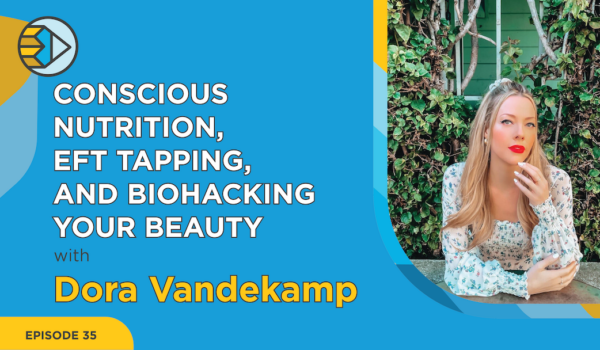
EP 56: How to Use Google Scholar for Academic Research
Have you ever used Google Scholar? While many professors will dissuade you from using Google for research (and rightly so), Google Scholar can actually be a useful tool for finding valid research.
As students in university or college, you generally have access to large databases of peer reviewed research studies that are perfect for literature reviews and research assignments. Alternatively, Google Scholar is an easy-to-access database that has some other benefits, as well.
In Episode 56 we are going against the grain to teach you how to Google Scholar for academic research and writing.
Looking for study tips, help with essay writing, or advice on how to be a better student? Welcome to The Homework Help Show, a weekly show where we teach, assist, and offer valuable insights for student life. From study hacks to writing tips, discussions about student mental health to step-by-step guides on academic writing and how to write a resume, we’ve got you covered. Want your questions answered? Write them below or join the conversation on social media using the hashtag #askHHG
TRANSCRIPT:
Cath Anne: [00:00:00] Hi guys and welcome back to our channel. My name is Cath Anne and this is Episode 56 of The Homework Help Show hosted by Homework Help Global. Here on the show. We provide you with valuable content for your academic and student life. Many professors will dissuade you from using Google as a source for your research papers as university and college students you likely have access to large databases of peer reviewed articles and research papers that are perfect for your academic assignments. Now you should always be careful about the information that you use in your academic papers. You will want to make sure that it is valid peer reviewed research. How ever many professors will not tell you that Google is a great resource for your academic assignments.
Cath Anne: [00:00:59] Today we’re going a little bit against the grain and maybe up it against the rules and we’re going to talk about how Google can be an effective and useful tools when you are attempting to generate content and research for your academic papers. Let’s jump in.
Cath Anne: [00:01:17] Generating research through a literature view is one of the most important steps in the research process. Google and Google scholar was developed by Google as a research resource for people looking for academic information similar to other academic databases using Google Scholar entails a little bit more than simply typing some keywords into a search bar. You have to know how to use Google Scholar effectively and that’s what we’re going to focus on today. First let’s talk about how to access and use Google Scholar. Now if you’re not familiar with the database, as I mentioned Google scholar is a research database that has thousands upon thousands of research articles in it in order to access the website. You do have to type it in manually into your your out bar because Google does not directly link to it from the Google home page. So in order to access Google Scholar type into your url bar scholar.google.com and you will be able to have access to this powerful research tool.
Cath Anne: [00:02:36] Okay so why can’t you just type a few words into the google scholar search bar and hope for the best. Well it’s because there is just way too much information out there. When you’re doing a search using Google Scholar because it is a worldwide database. You have to narrow your search parameters. Now let’s talk about some of the ways that you can effectively use Google Scholar and make use of the tool in ways that are strategic and take advantage of. All it has to offer because it is a really powerful tool.
Cath Anne: [00:03:13] First you can use google scholar to conduct backward searches. Now let me talk about a little bit what I mean about doing a backward search so you can begin this process in two ways. First type your key words or your information that you’re researching into the search bar. You will come up with a number of citations. At the bottom of each citation on the left side you will see and a word that says cited by and a number beside it. If you click on that cited by number google scholar will bring up a plethora of other resources that have cited that specific article. In this way you can start to narrow down your search and find other papers related to your topic. Second by looking at that cited by number it is easy to identify whether an article is valid research or not. So for example if an article has been cited 1045 times this is a pretty clear indication that it is a valid research article and that you are safe to use it in your own research. Another way to conduct a backward research search is to find an article and look at their resources or references page by scanning the references page on a valid research article. You then have access to a number of different research articles that you did not have access to before. And you know they are valid because they’ve been used in a valid study as well. So take advantage of this opportunity to generate some research ideas and even some new keywords and terms that you can use in your future research.
Cath Anne: [00:05:05] Second I wanted to talk about a really interesting tip search in incognito mode. When you’re searching Google on a regular basis, like most of us do, Google helpfully remembers your key terms and different items that you search. You may be familiar with how Google will suggest keywords when you’re doing a search. Now while this is helpful in our regular search this might not necessarily be as helpful when you’re searching for research and this is because Google actively narrows your search parameters by making suggestions and remembering what you have researched before. This is great if you are just doing general research but it might not help when you are looking for very specific information for a research study. This is not the time that you want Google to skew your results because you’re looking for original content and original research on a very specific topic. So how can you beat this. You can put your browser into incognito mode in this way. Google no longer remember your previous searches. So for example if you are looking for information on rivers in national parks, and you did a search for camping in national parks last week, Google will no longer remember that previous search and will simply focus on the research that you are looking for in the current moment. So set your browser to incognito mode for best results when you’re using Google Scholar.
Cath Anne: [00:06:39] Third, like any database you can’t just plug in keywords into Google Scholar and hope for the best. Take some time before you do your research to understand what your topic is. Write down some key words and some questions around why you’d like to know about the topic. Now of course this is going to take some time. However this will help you to narrow your search parameters and get more accurate results when you’re using Google Scholar. Narrow your topic and begin to make lists of questions and keywords break them into subtopics and then develop an understanding of what you will plug into Google Scholar. This will definitely turn out more valid results and more accurate information around the topic that you’re focusing on. This process may be helpful in helping you to generate more information around each subtopic. Begin by writing down what you would like to learn about a specific topic then break this information into subtopics and develop a list of key terms and key words. This information will help you to narrow your search parameters when you are using Google Scholar and therefore help you to turn out more accurate information. Now if you are largely unfamiliar with the topic that you’re focusing on for your research assignment you can certainly use databases such as Wikipedia or other online encyclopedias. Now remember these will not count as valid resources in your in your research assignment. However you can begin by using these databases to generate some information and understanding around your topic and then develop a list of keywords from there.
Cath Anne: [00:08:27] Number 4 stay organized with my libraries. So Google Scholar has this great component to it called My libraries. When you go into Google Scholar you will see a link in the top right hand corner of the page that is titled My Libraries. When you do a search, at the bottom of each citation that comes up in google scholar you will also see a small blue outline of a star. If you click that star Google Scholar it will automatically place that citation into your libraries. You can then use my libraries to stay organized and divide your citations by subtopic. This can certainly help if you’re working on a larger project like a Ph.D. thesis for example or a master’s dissertation. This is a great way to keep your citations organized. And all in one place.
Cath Anne: [00:09:25] Number 5 Click on related articles. When you see citations in google scholar you might have noticed that there is a small link at the bottom of each citation that says related articles. If you click on this you will see a plethora of other articles that are related to the topic that you have researched. This can be another great way to generate references and more information on your topic.
Cath Anne: [00:09:55] Number 6 organize and automate your citations. Let’s be honest, creating a work cited references page or a book really graphy is a strenuous task that no one really enjoys. Use google scholar to your benefit and help Google Scholar generate your citations for you. All you have to do to generate a citation in Google scholar is to click on the link below the citation that is in quotation marks. Double quotation marks and it will bring up a list of all the various formats that you can use in citation. So for example if you’re looking for an APA citation you can simply copy and paste that from Google Scholar and into your document.
Cath Anne: [00:10:46] Number 7, now like many other databases Google Scholar also has an advanced search option. The Advanced Search option allows you to narrow your parameters even further. So for example you can search by author you can search by time period and you can enter more specific keywords using the advanced search option. Definitely takes a little bit more practice so don’t become discouraged if you don’t get it right away. This is something that you can easily practice as you progress throw your academic career. Google scholar is an extremely powerful tool and something that is very useful for many students. It can help you to generate accurate and valid up-to-date academic research and make your research process a little bit more streamlined. Google Scholar can be a helpful tool to mine research for potential research papers and to develop an understanding of your research topic a little bit further. It can also help you to generate accurate citations and to organize them into a bibliography.
[00:11:54] Now you might be wary about how to identify a valid or relevant research article and this is something we discussed in last week’s episode. Episode 55 of The Homework Help Show we discussed how to spot bad science. So if you’re wary about using an online database like Google Scholar. Check out Episode 55 for some tips on how to identify a bad scientific article and. What to look for when you are identifying valid or relevant research.
Cath Anne: [00:12:32] Well guys that is it for me this week I hope this episode was helpful to you. As always if you have any questions jump into the comments below. We always love to hear from you guys. Make sure to like this video and subscribe to our channel so you don’t miss out on any more academic content. Make sure to connect with us on all of our social media platforms. Everything is linked and listed in the description box below. We always love to hear from you guys and make sure to reach out and connect. We hope that you’ll consider a google scholar as a great resource for you when you are conducting your academic research. Good luck writing those research papers and I will talk to you guys soon.
Share:

